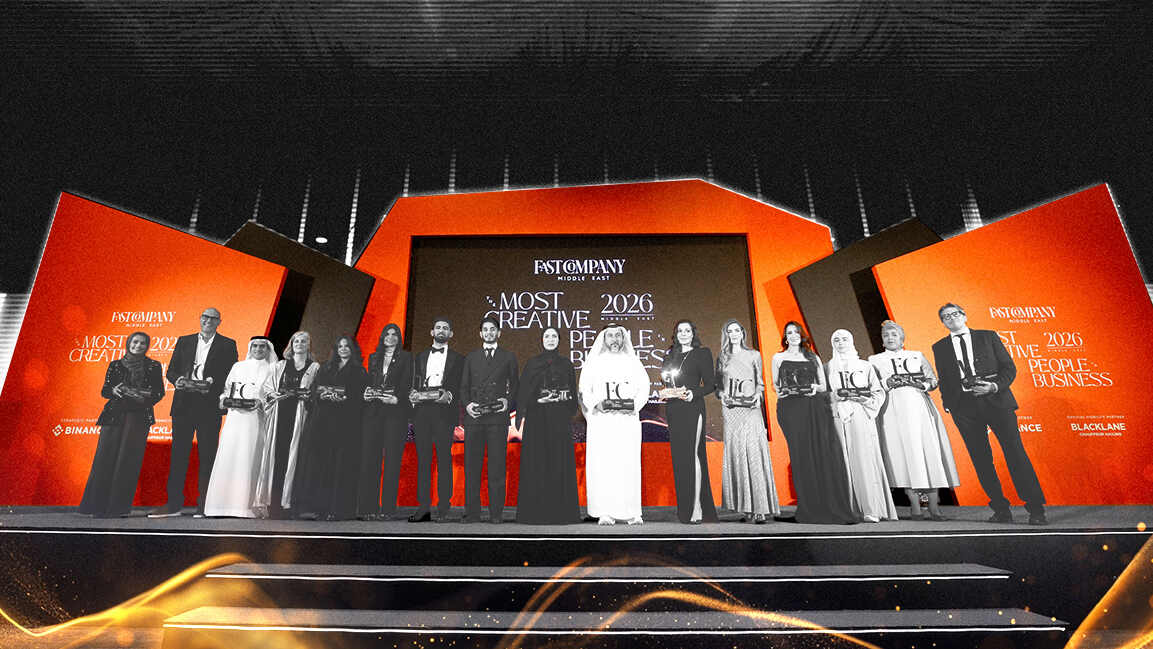- | 9:00 am
Why we need local libraries in the Middle East in the digital age
Experts in the Middle East say libraries will continue to serve as sanctuaries for deep, reflective learning

For all of human history, we have lived in a time of information scarcity, and having information was always important and worthwhile: where to find things, maps, histories, and stories. Information was valuable.
In the last few years, we’ve moved to an information glut.
The rapid pace of digital transformation has significantly changed how we consume information. The widespread use of tools like ChatGPT to summarize extensive reading materials showcases the profound impact of technology.
This digital age, fueled by the immediacy of social media, keeps us informed but also shortens our attention spans as we constantly scroll through an endless stream of data.
Contrast this modern quest for quick information with the bygone era when libraries were the sanctuaries of knowledge. Spending hours amidst the quiet stacks of books was a pursuit of information and an investment in deep, reflective learning. The relevance of libraries in today’s fast-paced world goes beyond the physical repository of books; they embody the essence of thoughtful and prolonged engagement with knowledge, an antidote to the quick consumption culture fostered by digital immediacy.
As we navigate through the vast seas of information made accessible by digital media, rediscovering the value of libraries invites us to slow down and engage more deeply with the world of knowledge, offering rich dividends in our understanding and appreciation of the world around us.
The Middle East and North Africa region boast a storied past of public libraries, from the ancient Al-Qarawiyyin Library in Morocco, established in the ninth century, to contemporary landmarks like Egypt’s Bibliotheca Alexandrina, Dubai’s Mohammed Bin Rashid Library, which houses hundreds of thousands of books from all over the world, covering different genres and languages, and Al Safa Art and Design Library, which hosts a vast collection of books on design, calligraphy, architecture, and the arts, the Qatar National Library in Doha, and the House of Wisdom in Sharjah and Dr. Sultan Al Qasimi Centre for Gulf Studies, which houses a rich collection of centuries-old maps, manuscripts, and books. These institutions highlight the region’s longstanding commitment to knowledge, learning, and cultural exchange.
CHALLENGES IN THE DIGITAL CHAPTER
People often misunderstand libraries and their purpose. If you perceive a library as a shelf of books, it may seem outdated in a world in which most books in print exist digitally. But that is to miss the point. It’s a community space.
More than just books, libraries run by communities are spaces where there is something for everyone. For the avid readers, they organize Silent Book Club readings; for children, there are regular lively book readings; then there are the giveaways for the most avid book reviewers, as also opportunities to volunteer time and come together to contribute to the upliftment of the library itself. This is the everyday work of community-led libraries like the Old Library in Dubai. It has emerged as a vibrant hub of engagement, learning, and connection, reflecting its readership’s unique needs and interests.
Far from the silent halls of the past, these libraries are dynamic spaces where residents’ voices shape everything from the collection of books to the programming offered.
By prioritizing inclusivity and accessibility, community-led libraries champion the idea that knowledge and resources should be freely available to everyone, forging more robust, informed communities. This approach to library services enriches local culture. It represents a response to the digital age’s changing landscape of information consumption, emphasizing the enduring value of communal spaces in fostering a love for learning and shared discovery.
However, challenges exist for libraries, a repository of information that gives every citizen equal access.
“The world over, the biggest challenge facing libraries is funding. For many libraries, maintaining relationships with decision-makers so that they are supported at the local government level with funding and program support is the challenge,” says Penny Mackenzie, a longstanding volunteer at the Old Library in Dubai and a former member of the Library Management Committee.
“Talking specifically about our little community library, we have a dedicated membership of general and volunteer members. If we could reach more people, we could have more members and afford a bigger space, which would no doubt have a snowball effect of enabling us to offer an expanded array of programs to our members,” she adds.
Though not all books will or should migrate to the screen, libraries are becoming places to access ebooks and web content, especially academic libraries, which are expected to ensure relevance to meet readers’ needs.
“Navigating the balance between traditional physical collections and the necessity of digital transformation has become crucial for libraries,” said Vanessa Northway, the Deputy Vice-Principal for Learning and Teaching at Heriot-Watt University Dubai, highlighting the imperative for libraries to integrate digital resources such as e-books, online databases, and digital archives.
According to Northway, the biggest challenge revolves around the substantial investments required in technology, infrastructure, and staff training, ensuring effective management of these digital resources.
Furthermore, she points out that for educational institutions and universities, making information accessible remains a priority. “Through the implementation of technologies like artificial intelligence in advancing classification systems, librarians are enhancing the accuracy of search and retrieval processes.” Northway also underscores the importance of online catalogs that allow users to search for materials remotely and the digitization of collections for remote access to ensure libraries remain relevant in today’s digital age.
For many children, it could be the place they can access technology or books outside the schoolroom at their public library.
REMAINING RELEVANT
What the future libraries will be like is something we should imagine now.
Are libraries equipped to thrive in the information age?
“Libraries must embrace technological advancements and integrate innovative solutions,” Northway said. She cites an example of the introduction of O’RYAN, an interactive library robot assistant at Heriot-Watt University Dubai, as part of the university’s Emerging Library Technology offering. “O’RYAN enhances the library experience by guiding users to specific book racks, demonstrating efficient use of the library kiosk for borrowing books, showing how to use the book drop machine for returns, and assisting with locating the printer, laptop kiosk, and group study rooms,” she says.
According to Mackenzie, libraries are constantly ahead of the game in terms of relevance, offering services outside the obvious book loaning and engaging communities in a diverse array of engagements. This includes after-school homework assistance to have 3D printers and courses in computer literacy and writing skills.
Mackenzie says that the Old Library in Dubai aims to provide “a good collection of books,” for pleasure readers of all ages. “A humble little library with a big-hearted, supportive, passionate community of readers and volunteers.”
Libraries are the gates to the future, they are crucial for promoting digital literacy and ensuring access to information for all.
“They also support lifelong learning by offering resources and programs for people of all ages. Despite technological advancements, their core mission is promoting knowledge and supporting community development. Adaptation to new technologies while maintaining these foundational roles will keep libraries essential and relevant,” says Northway.
So, will libraries be critical to society’s development? “In terms of reference libraries, the roles of curators and content managers and researchers in the academic and scientific realms in general make librarians and libraries even more important,” says Mackenzie.
She cites the famous Neil Gaiman’s quote: “Google can bring you back 100,000 answers. A librarian can bring you back the right one.”
The juxtaposition of libraries with the digital age underscores that while the mediums through which we access information have expanded, the core mission of libraries to facilitate learning, foster community, and promote equal access to information remains unchanged and as crucial as ever.
Libraries have not only adapted but thrived, proving their enduring importance to societal progress in an ever-evolving digital landscape.
“Technological advancements do not make libraries less relevant; they offer amazing tools for libraries to evolve and serve better,” says Mackenzie.







































